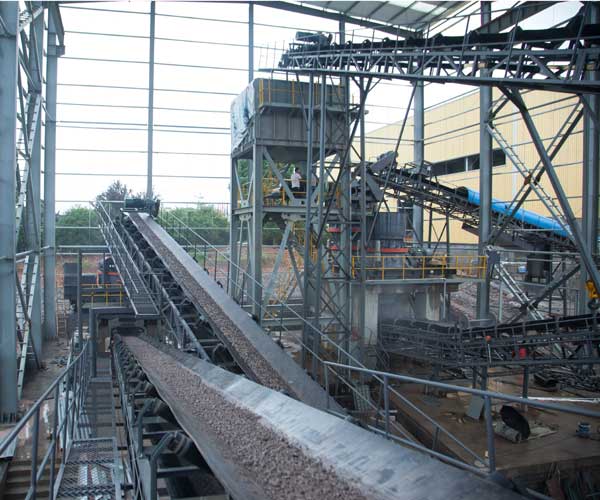
Gravel crushers are essential machines in the aggregate industry, playing a crucial role in transforming raw materials into high-quality construction materials. With various types of gravel crushers available, each with its unique function, features, and applications, aggregate producers can efficiently meet the demands of modern construction projects.
24 Online Service
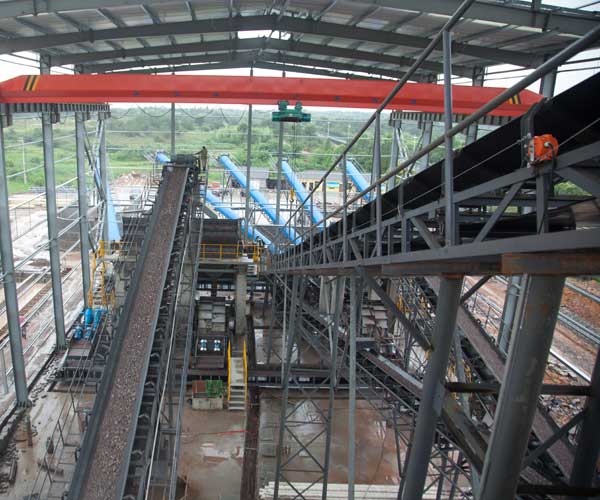
Gravel is a versatile and essential construction material, used in a wide variety of applications, including road construction, concrete and asphalt production, and landscaping projects. The gravel production process involves extracting, crushing, and screening raw materials to create aggregates that meet specific size and quality requirements.
The production of gravel involves several steps, including extraction, primary and secondary crushing, screening, and stockpiling. Each stage plays a critical role in transforming raw materials into construction-ready aggregates.
The first step in the gravel production process is the extraction of raw materials from quarries or pits. This typically involves drilling and blasting to break up large rocks and boulders, which can then be more easily processed by crushers. In some cases, excavation equipment such as excavators and loaders may be used to extract smaller rocks and other materials directly from the ground.
Once the raw materials have been extracted, they are transported to the primary crusher, which is responsible for reducing the size of the rocks into smaller, more manageable pieces. There are several types of primary crushers, including jaw crushers, gyratory crushers, and impact crushers, each designed to handle varying sizes and types of materials. The choice of primary crusher depends on factors such as the hardness and abrasiveness of the raw material, as well as the desired size and shape of the final product.
After primary crushing, the materials are further processed in secondary crushers, which reduce the size of the material even further. This step is critical in producing high-quality aggregates, as it ensures consistent particle size and shape. Common types of secondary crushers include cone crushers, vertical shaft impact (VSI) crushers, and hammermill crushers.
Following secondary crushing, the material is screened to separate it into different sizes and grades, depending on the requirements of the end-user. Screening equipment typically consists of vibrating screens, which use either a linear or circular motion to separate materials based on their size. The screens can be equipped with different-sized mesh or screen media to achieve the desired separation.
Once the materials have been screened, they are stockpiled for transportation to construction sites or further processing in other industries, such as concrete or asphalt production. Stockpiling can be done using a variety of equipment, including conveyors, stackers, and loaders. Proper stockpile management is essential to maintain the quality and consistency of the aggregates, as well as to ensure efficient loading and transportation.
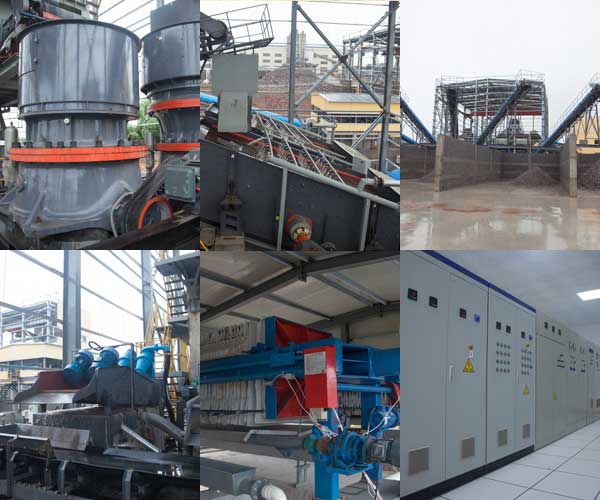
The gravel production process relies on a variety of specialized equipment and techniques to produce high-quality aggregates. Some of the most commonly used equipment and techniques include:
Crushers are essential machines in the gravel production process, responsible for reducing the size of raw materials to create the desired aggregates. They come in various types and sizes, from portable units to industrial-grade crushers that can process thousands of tons of material per hour. The choice of crusher depends on factors such as the hardness and abrasiveness of the raw material, as well as the desired size and shape of the final product.
Screening equipment plays a crucial role in the gravel production process, ensuring that the final product meets the required specifications. Vibrating screens are the most commonly used type of screening equipment, as they provide an efficient and reliable method for separating materials based on their size. Proper screen selection is essential to achieve the desired separation and to maintain the quality and consistency of the aggregates.
Conveyors are used throughout the gravel production process to transport materials between different stages and equipment. They come in various types, including belt conveyors, screw conveyors, and bucket elevators. Conveyors help to maintain a continuous flow of material, ensuring efficient production and minimizing downtime.
Feeders are used to regulate the flow of material into crushers, screens, and other processing equipment. They come in various types, such as vibrating feeders, apron feeders, and belt feeders. The choice of feeder depends on factors such as the size and type of material, as well as the desired throughput and level of control.
In some cases, the gravel production process may involve washing and dewatering to remove impurities and fine particles from the aggregates. Washing equipment, such as log washers and sand screws, is used to clean and separate materials, while dewatering equipment, such as hydrocyclones and dewatering screens, is used to remove excess water from the washed aggregates. Washing and dewatering not only improve the quality of the final product but also help to meet strict environmental regulations.
Dust suppression is an essential aspect of the gravel production process, as it helps to minimize the impact of dust on the environment and worker health. Various techniques can be employed to control dust, including water sprays, fogging systems, and dust collectors. Proper dust suppression is not only crucial for environmental compliance but also for maintaining the overall efficiency and productivity of the gravel production process.
Quality control and monitoring are critical components of the gravel production process, ensuring that the final product meets the required specifications and quality standards. This may involve regular sampling and testing of the aggregates, as well as the use of advanced monitoring equipment, such as online particle size analyzers and automated control systems. By maintaining strict quality control measures, aggregate producers can guarantee the consistency and reliability of their products, ultimately improving their competitiveness in the market.
The gravel production process is a complex and multifaceted operation, involving the extraction, crushing, screening, and stockpiling of raw materials to produce high-quality aggregates for construction applications. By employing specialized equipment and techniques, aggregate producers can efficiently transform raw materials into valuable construction materials, meeting the demands of modern construction projects and contributing to the growth and success of the industry. As technology and innovation continue to advance, it is likely that the gravel production process will become even more efficient and sustainable, ensuring a reliable supply of high-quality aggregates for years to come.
Gravel crushers play a vital role in the aggregate industry, transforming raw materials into valuable construction materials. These machines are designed to handle varying sizes and types of materials, ensuring that the final product meets the desired specifications.
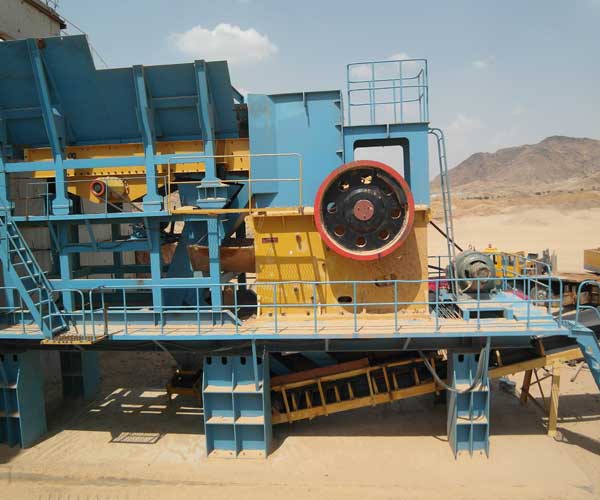
Jaw crushers are among the most commonly used primary crushers in the gravel production process. They are ideal for handling medium to large-sized rocks, breaking them down into smaller, more manageable pieces.
Jaw crushers operate on a simple principle: a compressive force is applied to the material, causing it to break down. The material is fed into a V-shaped chamber, where a moving jaw applies force to crush the material against a stationary jaw. The crushed material is then discharged through an opening at the bottom of the chamber.
Jaw crushers are widely used in various industries, including construction, mining, and recycling. They are suitable for processing hard and abrasive materials, as well as materials with a high compressive strength.
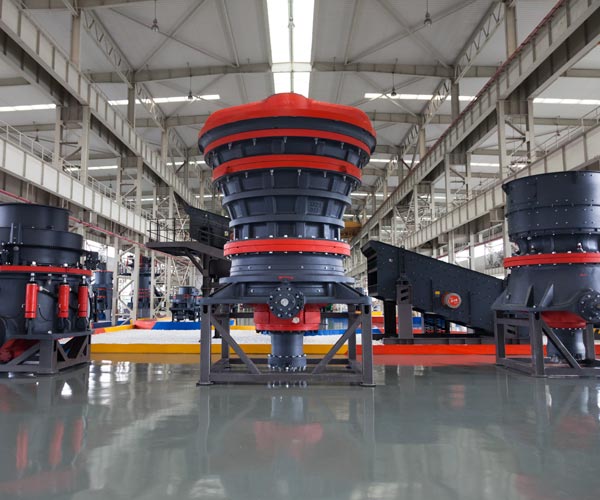
Gyratory crushers are another type of primary crusher used in the gravel production process. They are designed to handle large rocks and boulders and are typically used in high-capacity operations.
Gyratory crushers consist of a cone-shaped crushing head that gyrates within a larger, stationary concave surface. The crushing action is achieved through a combination of impact and compression forces. The crushed material is discharged through an opening at the bottom of the chamber as the crushing head moves away from the concave surface.
Gyratory crushers are primarily used in large-scale quarrying and mining operations, where high-capacity, continuous processing is required. They are suitable for processing hard and abrasive materials, as well as materials with a high compressive strength.
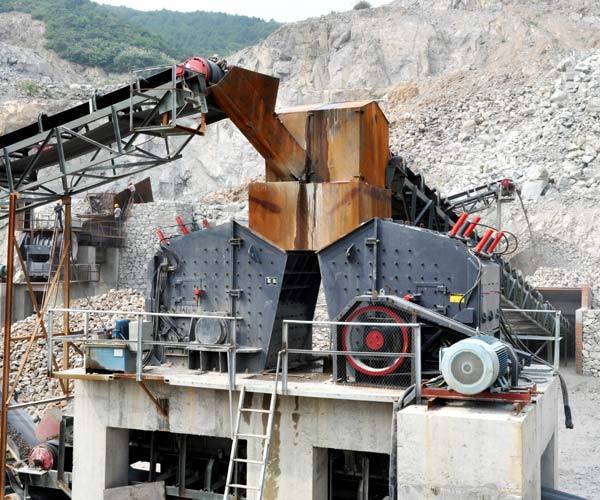
Impact crushers are versatile machines that can be used as either primary or secondary crushers in the gravel production process. They are known for their ability to handle soft and medium-hard materials.
Impact crushers use high-speed rotating hammers or blow bars to break down materials. The material is fed into a chamber, where it is impacted by the hammers and broken into smaller pieces. The crushed material is then discharged through an opening at the bottom of the chamber. Impact crushers can be configured as horizontal or vertical shaft machines, depending on the specific application and desired output.
Impact crushers are widely used in various industries, including construction, mining, and recycling. They are suitable for processing soft and medium-hard materials, as well as materials with a low to medium compressive strength.
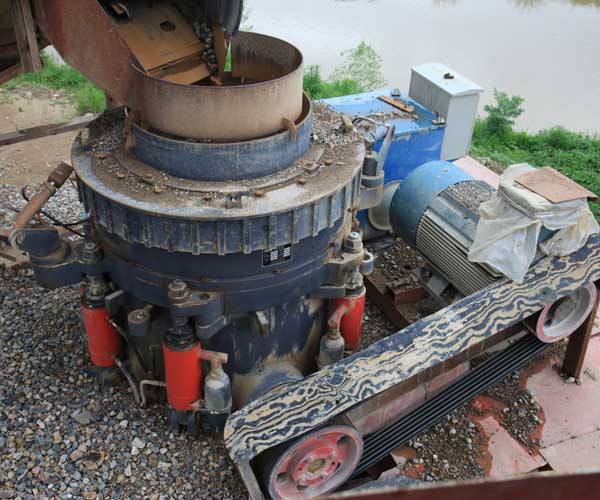
Cone crushers are commonly used as secondary crushers in the gravel production process. They are designed to handle smaller-sized material that has already been processed by a primary crusher, ensuring that the final product meets the desired specifications.
Cone crushers use a rotating cone-shaped crushing head that moves within a fixed outer concave surface. The material is crushed through a combination of compressive and shearing forces, resulting in a consistent particle size and shape. Cone crushers can be configured as either standard or short head machines, depending on the specific application and desired output.
Cone crushers are primarily used in secondary and tertiary crushing stages in the aggregate, mining, and recycling industries. They are suitable for processing a wide range of materials, from soft and medium-hard materials to hard and abrasive materials.
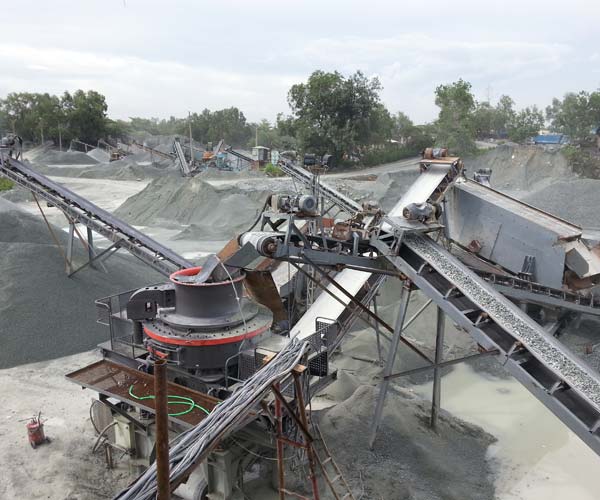
Vertical shaft impact (VSI) crushers, also known as sand making machines, are used as tertiary crushers in the gravel production process. They are designed to produce high-quality, cubical-shaped aggregates that are ideal for various applications, including concrete and asphalt production.
VSI crushers use a high-speed rotor to throw material against a stationary anvil or impact plates. The material is fractured through a combination of impact and attrition forces, resulting in a consistent particle size and shape. VSI crushers often feature a closed-circuit design, which allows for precise control over the final product’s size and shape.
VSI crushers are primarily used in tertiary crushing stages in the aggregate, mining, and recycling industries. They are suitable for processing a wide range of materials, from soft and medium-hard materials to hard and abrasive materials. VSI crushers are particularly well-suited for the production of high-quality, cubical-shaped aggregates required in concrete and asphalt production, as well as in the manufacturing of sand for various applications.
By understanding the differences between the various types of gravel crushers, industry professionals can make informed decisions on the most suitable equipment for their specific needs, ultimately improving the efficiency and sustainability of the gravel production process.
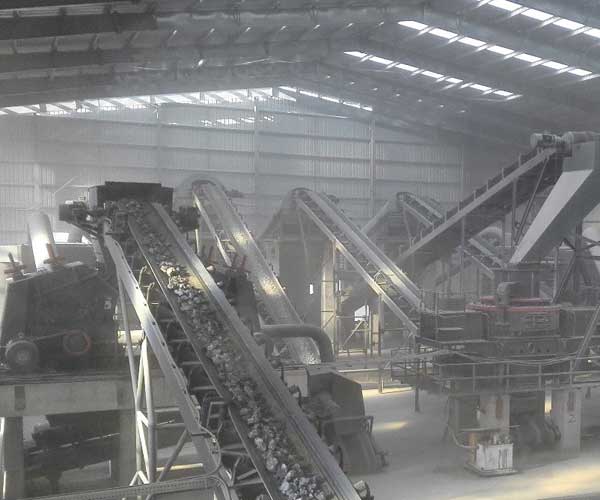
The aggregate industry plays a crucial role in the construction sector, supplying essential materials that are used in various projects such as highways, bridges, and buildings. One of the primary materials produced by the aggregate industry is gravel, which is a versatile, cost-effective, and environmentally friendly option for numerous applications.
Gravel crushing is a fundamental process in the production of aggregates. It involves breaking large rocks into smaller particles, which can then be used in various construction applications. The crushed gravel serves as a base for roads, an essential component of concrete, and a drainage solution in landscaping projects. The high demand for gravel in the construction sector underscores the importance of efficient and effective gravel crushing processes in the aggregate industry.
There are several methods used in the gravel crushing process, each designed to achieve different particle sizes and shapes. These methods include:
When it comes to selecting a gravel crusher, there are several factors to consider. A gravel crusher is a machine that breaks down large stones or rocks into smaller, more manageable pieces. It is a crucial piece of equipment in the construction and mining industries. Choosing the right gravel crusher can make a significant difference in the success of your project.
The first factor to consider when selecting a gravel crusher is the type of gravel you need to crush. Different types of gravel have varying levels of hardness, density, and abrasiveness.
The second factor to consider when selecting a gravel crusher is the capacity of the machine. The capacity of the machine refers to the amount of material it can crush in a specific period.
The power output of the machine is also an essential factor to consider when selecting a gravel crusher. The power output refers to the amount of energy the machine can produce.
If you need to move your gravel crusher from one site to another, portability is an important factor to consider. Some machines are designed to be portable, while others are stationary.
Like any other machine, a gravel crusher requires maintenance and repair. Therefore, you need to consider the ease of maintenance and repair when selecting a machine.
The cost of the machine is also an essential factor to consider when selecting a gravel crusher. Different machines come at different prices.
The reputation of the manufacturer is an important factor to consider when selecting a gravel crusher. You need to choose a machine from a reputable manufacturer who has a track record of producing quality machines.
Finally, you need to consider the safety of the machine when selecting a gravel crusher. A safe machine will protect the operator from accidents and injuries.
Our Projects
Copyright © ZENITH, All Right Reserved.
